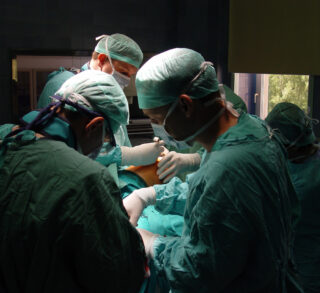
More Beauty Skin Care & Gorgeous Smiles Articles
Avoiding Opioids After Surgery: A Plastic’s Surgeon’s Secrets

In 2021, we lost over 80,000 Americans from opioid drug overdoses. At the same time, pain is something that we as human beings naturally seek to avoid.
Taking a couple of narcotic pills after a surgery is reasonable. This is not why we have an opioid problem in the United States. The reason for our country’s opioid problem is the routine prescription of 80 narcotic tablets when the patient does not need any!
One of the reasons that physicians over prescribe narcotics is to prevent a phone call from a patient requesting more pain medications. All of my cosmetic surgeries are elective, so here is how I manage my patients’ pain:
During Surgery
I typically apply a long-acting numbing medication called Marcaine to the surgical site. Some patients note that they are numb and have zero pain the next day.
Tylenol: If my patient has minimal pain when they go home, I recommend they take Tylenol. Regular Tylenol (acetaminophen) is 325 mg. Extra strength Tylenol is 500mg. I am comfortable with my patients taking two regular strength Tylenols (650 mg) every 4 hours.
Percocet: If surgical pain is severe, I tell my patients that taking a narcotic is okay! I often prescribe Percocet (5/325) which contains 5 mg of oxycodone and 325 mg of acetaminophen (an ingredient of Tylenol). I allow my cosmetic surgery patients to take 1-2 Percocet, every 4-6 hours.
One of the side effects of any narcotic is constipation. That is why I recommend prune juice (with pulp if possible).
I tell my patients that it may be a good idea to take a Tylenol or Percocet before they go to sleep at night to minimize waking up from pain. A good night of sleep helps healing.
Percocet contains acetaminophen (the ingredient in Tylenol). Therefore, patients should NOT combine Percocet with Tylenol tablets at the same time because they may take too much acetaminophen.
Ibuprofen: On the day after surgery, my patients may add ibuprofen to their pain protocol. Ibuprofen and Tylenol (acetaminophen) work differently and have different side effect profiles. This means that Tylenol can be taken with Ibuprofen.
Ibuprofen can increase the risk of bleeding, so I recommend my patients start ibuprofen the day after surgery when the risk of bleeding decreases. Ibuprofen will cause stomach upset, so I recommend taking ibuprofen with… food and prune juice.
Over the counter ibuprofen comes in 200 mg tablets. The maximum prescription dose of ibuprofen is 800 mg, 4 times a day (16 tablets!!!). Because of the stomach-upset side effect, I recommend my patients stay below the max dosages and take 1-3 tablets (200-600mg) of ibuprofen 3 times a day as needed. Using ibuprofen on the first day after surgery has helped many patients no longer need Percocet.
I have effectively steered my cosmetic surgery patients through post-surgical recuperation in a comfortable and safe manner. Ask your doctor for specific strategies on narcotic reduction strategies as this article is not specific medical advice. However, remember that many patients have had surgery and avoided postoperative narcotics.
Other Articles You May Find of Interest...
- Plastic Surgery Without Anesthesia?
- The Top Benefits of Dermal Fillers for Rejuvenated Skin
- When To Start Botox? Here’s What Dermatologists Recommend
- What Safety Measures Should Be Taken Before Abdominoplasty Procedures in Sydney?
- 6 Benefits of Regular Exfoliation for Maintaining Clean and Healthy Skin
- Staying Healthy and Beautiful After 50: The Complete Guide for Women
- Summer Hair Care Tips: Keeping Your Hair Healthy and Hydrated

















